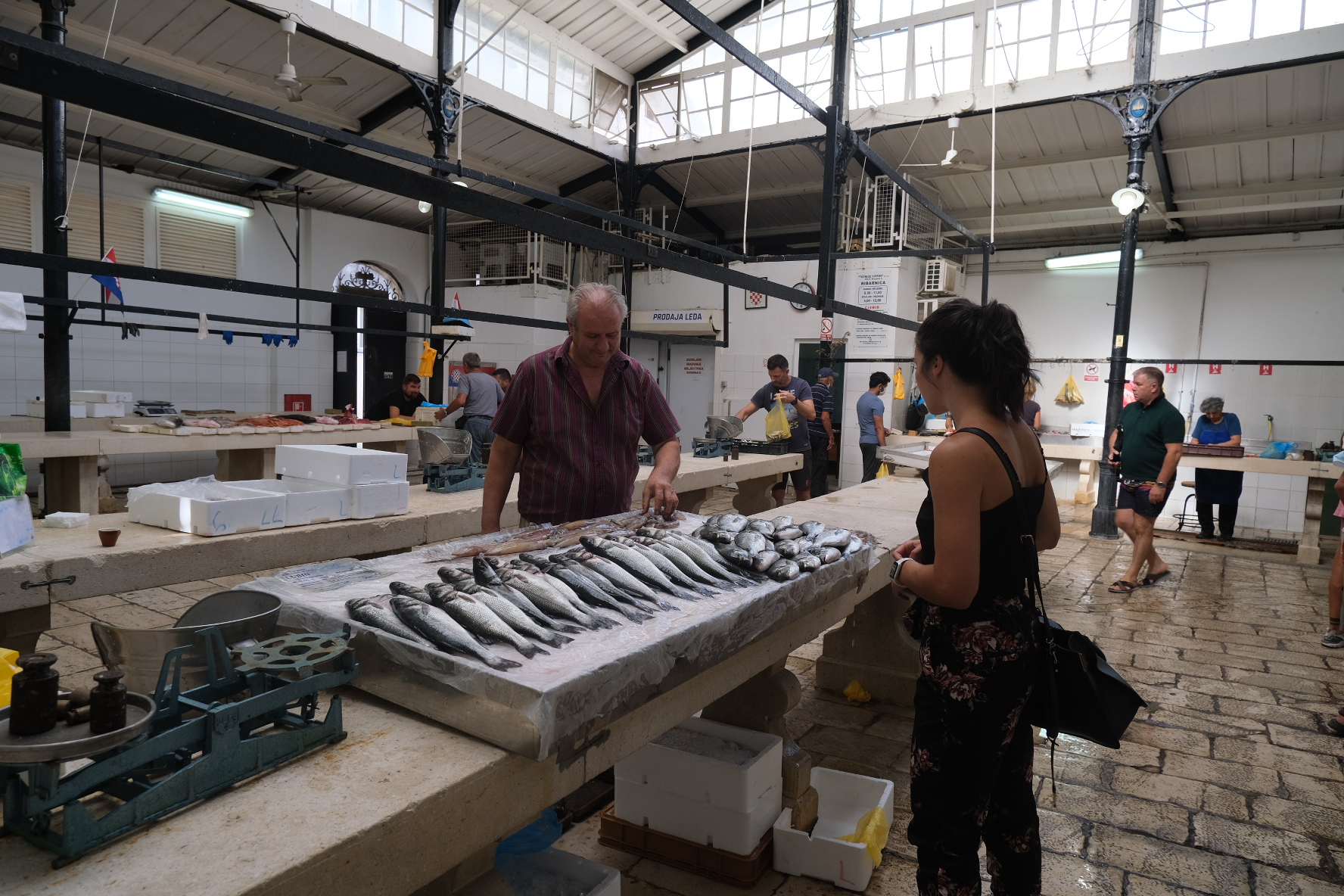
Sustainable Food Tourism
Not everyone golfs or shops or dives, but everyone eats. Every traveller is participating in food tourism at some point. Chances are, you’ve likely participated in food tourism before – whether you intended to or not! Food tourism experiences include food tours, cooking classes, wine tastings, brewery tours, farm and producer visits, and market experiences.
Travellers today are more cultured than travellers of 20 years ago. We’re well-travelled, searching for new experiences, concerned about the environment, interested in taking part in a healthy lifestyle and have a desire to experience authentic local culture when we travel.
Research has shown that food serves to connect people with the land, its heritage and the people at a destination. It is a diverse, dynamic channel for sharing stories, forming relationships and building communities. By combining local food and drink with travel, food tourism offers both locals and visitors an authentic taste of place while contributing to a sustainable economy and local economic development.
What is sustainable food tourism?

Food tourism includes the active pursuit of unique and memorable eating and drinking experiences as well as agritourism experiences that connect what is being grown and produced in an area to what is being prepared and enjoyed by locals.
As food tourism has gained more visibility in recent years, so has sustainable tourism. Defined as travel that avoids “the depletion of resources – whether environmental, economic, or cultural,” sustainable tourism is a response to overtourism – when the number of visitors a destination receives exceeds its resources.
Food tourism can attract travellers and contribute to sustainability simultaneously.
Food tourism can play a significant role in preserving local heritage while building on existing tourism assets and driving innovation. By increasing visitor demand for local food and drink, food tourism contributes to the long-term sustainability of local agriculture, food systems, communities, and culture.
Sustainable food tourism focuses on education, facilitating dialogue, and most importantly, giving the traveller an opportunity to actively participate in sustainability. Sustainable food experiences are centred around collectivity, hands-on activities and participation that lead the way to disrupt the traditional roles of guest and host. These experiences also inspire sustainable practices beyond the immediate context and offer generally applicable tools for sustainable consumption that travellers can take back home with them.
Why sustainable food tourism matters
Great food can rival landmarks, museums, climate, and nightlife as a draw for tourists. In recent years, food tourism has gained popularity with increasing speed. Today, cuisine often takes centre stage as the primary, and even sole reason many travellers select their destination. According to a 2016 study by the World Food Travel Association, food ranks within the top five most important considerations for travellers when booking a trip.
Few things are more simple or universal than food, yet simultaneously capture the uniqueness of a destination.
Food tourism stats
53%
of leisure travellers are food travellers
81%
of travellers “learn about food and drink when they visit a destination”.
59%
of travellers believe that “food and beverage is more important when they travel than it was 5 years ago”.
While food tourism is sought out by travellers, providing a leverage point for destination marketing organizations and giving communities a unique way to appeal to travellers, food tourism also supports local economies while contributing to the preservation of cultures and traditions around the world.
Benefits of food travel
The United Nations regards food as an ‘intangible cultural asset’ and considers food to be part of a destinations ‘persona’.
According to a 2020 Food Travel Monitor report, destinations that embrace food tourism enjoy a 25% greater economic impact than other destinations. This additional economic benefit can revitalize local economies, build stronger communities, and contribute to sustainable rural livelihoods.
Food tourism also contributes to growing community awareness and pride in local culinary traditions, and attracts travellers that are more sustainable, respectful, and educated.
A commonly held theory in many research fields is that F&G [food and gastronomy] can contribute to the economic, social and environmental sustainability of places while potentially representing elements that increase those places’ attractiveness and competitiveness.
Sustainability

Be a sustainable foodie at home and on the road
Participating in sustainable food tourism is an easy way to give back to local communities and enjoy a more authentic travel experience. Here are some tips to help you engage in sustainable food tourism and resources for finding sustainable culinary adventures around the world.
VISIT WHERE FOOD IS GROWN – this extends beyond what we may think of as traditional food growing areas like farms. Extend this to vineyards, coffee farms, community gardens, and local aquaculture operations. Organize tours of these spots to learn more about local cultivation practices and what goes into producing local delicacies.
VISIT LOCAL MARKETS – markets are a great place to purchase local ingredients to try your hand at cooking your own locally-inspired meal.
TAKE A COOKING CLASS – to get insight on how exactly to perfect a locally-inspired meal, take a local cooking class. This is one of my favourite things to do while travelling. Cooking classes are immersive and hands-on experiences that give travellers unique insight into the culture of a destination.
VISIT A SOCIALLY RESPONSIBLE RESTAURANT – get in touch with local restaurants, farm to fork establishments, and those specializing in traditional local cuisine. Many restaurants also offer educational tasting experiences and opportunities to engage with local chefs for a more interactive dining experience.
THE TRAVELLING SPOON – need help planning your food travel experience? Check out the Travelling Spoon, a company that connects travellers with local, vetted hosts to share the joy of a homemade meal in their home and learn about their cultural and culinary traditions passed down through generations.



